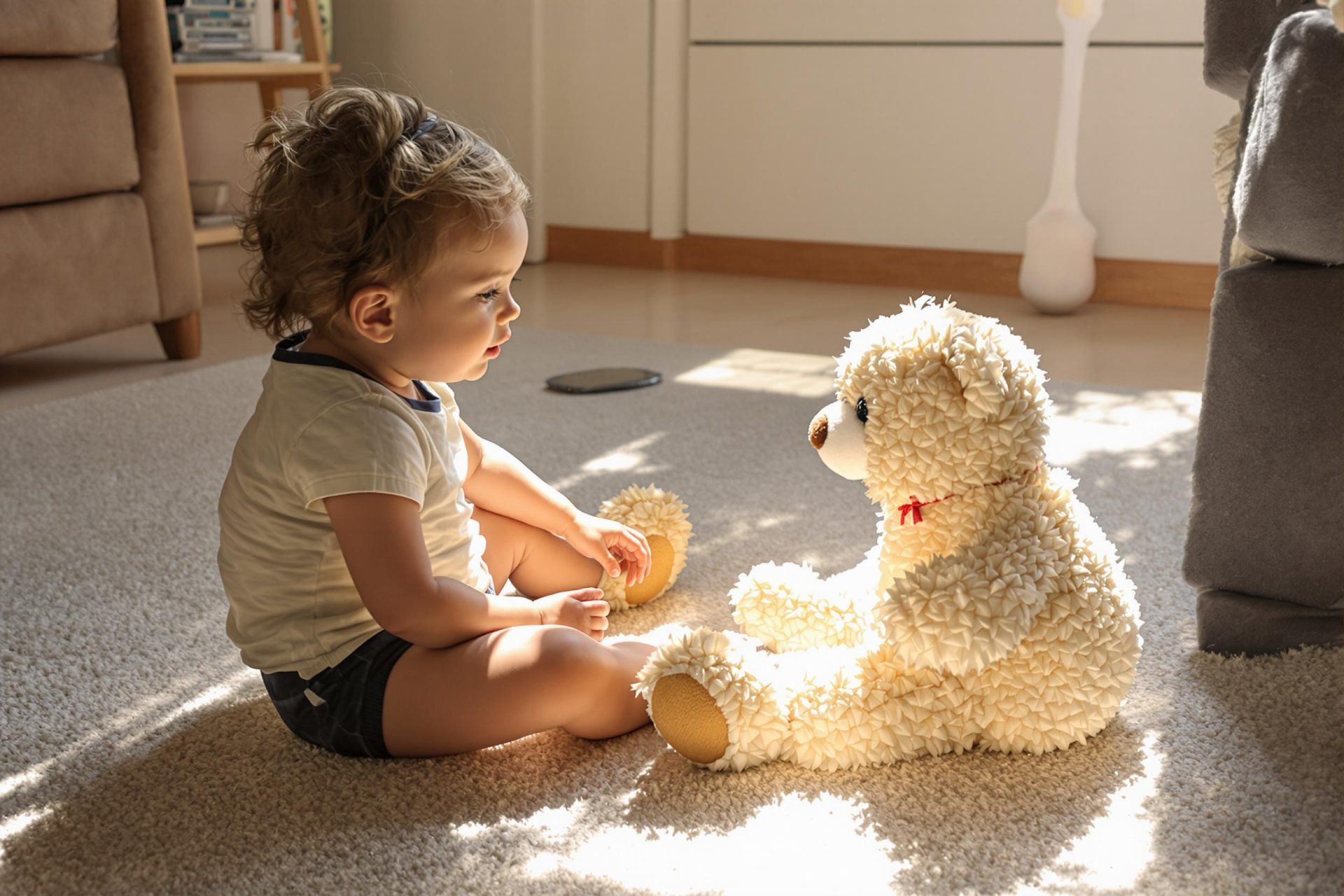Key Takeaways
- Anthropic cofounder Jack Clark believes many parents will embrace AI-powered teddy bears to help entertain their children.
- He suggests these AI toys could act as “well-meaning friends,” offering occasional entertainment rather than replacing human interaction.
- Other tech leaders, such as OpenAI’s Sam Altman, express concerns about privacy and children forming primary bonds with AI.
- Clark advocates for parental regulation of these AI companions, similar to managing screen time with television.
Jack Clark, a cofounder of the AI company Anthropic, thinks a lot of parents, himself included, will be keen on AI teddy bears to help entertain their kids. He shared this idea on a recent episode of the Conversations with Tyler podcast.
“I think most parents, if they could acquire a well-meaning friend that could provide occasional entertainment to their child when their child is being very trying, they would probably do it,” Clark stated.
AI tools designed for children’s entertainment are already making an appearance. Examples include a stuffed rocket ship backed by Grimes, which kids can chat with, and a storytelling bear that uses AI to create tales.
While Clark wasn’t specifically discussing these existing products, he expressed support for toys with expanded capabilities. He envisions “smart AI friends” that could interact with children much like a peer their own age.
“I am annoyed I can’t buy the teddy bear yet,” said Clark, who previously worked at OpenAI before moving to Anthropic.
He believes many parents feel similarly. As soon as children show a desire to socialize, parents look for ways to connect them with peers, he noted. An AI companion could be an additional resource, not a substitute.
“I think that once your lovable child starts to speak and display endless curiosity and a need to be satiated, you first think, ‘How can I get them hanging out with other human children as quickly as possible?'” Clark said, mentioning his own child is on a preschool waitlist.
He particularly wishes for an AI tool’s help during daily chores. “I’ve had this thought, ‘Oh, I wish you could talk to your bunny occasionally so that the bunny would provide you some entertainment while I’m putting the dishes away, or making you dinner, or something,'” Clark explained.
However, not everyone in the tech world agrees. Sam Altman, CEO of OpenAI and a new father, stated he doesn’t want his son’s best friend to be a bot, citing privacy concerns. He worries about AI systems learning so much about individuals over their lifetimes, presenting new challenges for privacy, according to Business Insider.
Research from Microsoft and Carnegie Mellon University has also raised flags, suggesting that improper AI use could lead to a “deterioration of cognitive faculties.”
Despite these concerns, some studies indicate children can be taught to work alongside AI rather than becoming entirely dependent on it. Clark advocates for measured exposure.
He argues that completely removing a hypothetical AI friend from a child’s life might lead to an unhealthy relationship with the technology later. If a child seems to prefer their AI companion over human friends, Clark suggests it’s up to parents to gently guide them back.
“I think that’s the part where you have them spend more time with their friends, but you keep the bunny in their life because the bunny is just going to get smarter and be more around them as they grow up,” he said.
Ultimately, Clark believes that, like any entertainment technology, parents will need to regulate their child’s use of AI toys. He compared it to managing television viewing, suggesting rules could be set for when the AI companion is available.



